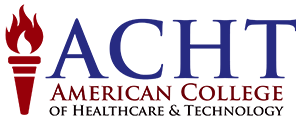The growth of eHealth and other mobile-based medical systems will only increase the need for professionally trained medical office professionals who manage the administrative side of the healthcare industry.
“Many of the same demands for healthcare reform – the need to improve access, quality of care, patient safety and clinician efficiency to treat patients cost effectively – are setting in motion the second-wave of mobility in healthcare,” a Computer World article stated. “Many healthcare industry observers say that mobile health (mHealth), telehealth and other eHealth initiatives are on the verge of changing the care delivery model – so much so, they say, that it’s about time to drop the prefixes and start referring to the use of technology as plain old ‘health.’”
The increase of mobile-based health clinics will only create a greater demand for medical office professionals who can process paperwork and track health records of patients. As patients log in to a mobile-based system or website, there will be an office behind the scenes tracking these movements and insuring that the administrative component is taken care of.
Medical office professionals can most often be found at the front desk of a medical facility, but there is also a need for medical office professionals in behind the scenes offices. The growth of eHealth will make this a greater reality in the healthcare industry.
Employers are looking for medical assistants who have relevant training in modern systems most commonly used in healthcare facilities across the country. Technology is changing the face of the medical field in both clinical and administrative areas. Those changes are likely to continue, which is why employers are also looking for medical assistants who can adapt and show a passion for continued learning.
This is also a worthwhile career field because the demand for medical assistants is likely to continue to grow.
A Technical College’s medical assistant professional training program is one of the best ways to secure a career in the healthcare industry without studying to become a doctor, nurse or other type of clinical professional. However, medical assistants are required to possess a lot of different skills ranging from administrative oversight to specific clinical administrative tasks, and those skills are changing every year as the medical industry continues to change. These positions require workers that are experts on patient data and can communicate effectively with doctors, nurses and other healthcare providers. The job is in high demand, especially as the healthcare industry continues to experience strong growth throughout the United States, in both traditional and non-traditional – such as eHealth – forms of medical care.
There are many reasons for the growth of eHealth, including “ever-rising smartphone use among both patients and physicians,” according to Computer World. “Patients are using mobile health apps for a variety of health and wellness purposes, from monitoring diet and exercise to controlling diabetes, while ‘more and more physicians are using their mobile devices as part of caring for patients,’ says Lynne Dunbrack, program director for Connected Health IT with IDC Health Insights. “Consequently, CIOs do need to focus their attention on this, particularly on mobile security.”
Now is the perfect time to launch a medical office professional career and A Technical College is one of the best programs to consider when looking to launch this new career.
Healthcare employers are looking for medical assistants who have up-to-date training an understand the new processes and systems that the industry requires. Many medical assistants work in administration and the new RCM systems are changing the way medical assistants are required to do their job.
A Technical College’s medical office professional training program is one of the best ways to secure a career in the healthcare industry with relevant and up-to-date training and experience. However, medical assistants are required to possess a lot of different skills ranging from administrative oversight to specific clinical administrative tasks, and those skills are changing every year as the medical industry continues to change. These positions require workers that are experts on patient data and can communicate effectively with doctors, nurses and other healthcare providers.
